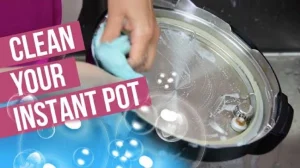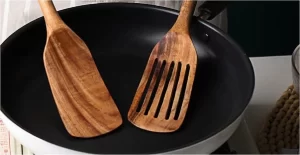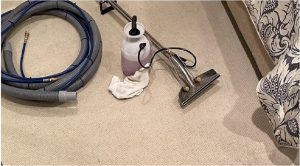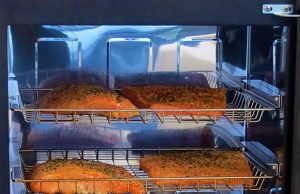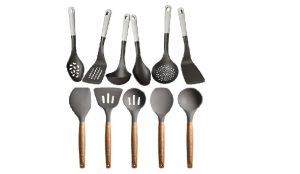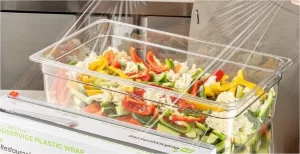Ways to Remove Rust from Cast Iron Flat Top Grill
Getting rust off a cast iron flat top grill requires patience and the right technique. Here’s a guide to help you achieve a rust-free grill.
Cast iron flat top grills, while durable and efficient, are prone to rust if not properly maintained. Exposure to moisture, especially after cooking, can lead to rust formation.
To remove rust, start by scrubbing the grill with a mixture of baking soda and water using a non-abrasive scrubber. This mixture acts as a gentle abrasive, helping to lift off the rust without damaging the grill’s surface. After scrubbing, rinse the grill thoroughly with water and dry it completely.
For stubborn rust spots, consider using a commercial rust remover designed for cast iron surfaces. Always follow the manufacturer’s instructions and ensure the grill is well-rinsed after using any chemical solutions.
Once the rust is removed, it’s crucial to season the grill. Apply a thin layer of vegetable oil and heat the grill for an hour. This process not only protects against future rust but also enhances the grill’s cooking performance.
Cast Iron And The Nature Of Rust
Cast iron, a popular choice for flat top grills, boasts durability and excellent heat retention. Yet, it’s susceptible to rust, especially if exposed to moisture. Rust forms as a result of a chemical reaction between iron, oxygen, and water.
This oxidation process can compromise the quality and longevity of the grill. While the robust nature of cast iron ensures it remains a favorite, its vulnerability to rust is a challenge many grill owners face.
Knowing the nature of rust and how it interacts with cast iron is the first step in effective rust management and removal.
how to get the rust off cast iron flat top grill
Restoring a rusted cast iron flat top grill to its original glory involves a series of steps that ensure the rust is effectively removed without damaging the grill. Here’s a detailed guide to help you achieve a rust-free grill.
Step 1: Gather Necessary Supplies
A non-abrasive scrubber, baking soda, water, vegetable oil, and a cloth or towel.
Step 2: Prepare a Cleaning Solution
Mix equal parts of baking soda and water to form a paste. This paste acts as a gentle abrasive, aiding in the removal of rust without scratching the grill’s surface.
Step 3: Apply the Paste
Spread the baking soda paste evenly over the rusted areas of the grill. Allow it to sit for 10-15 minutes to loosen the rust.
Step 4: Scrub the Grill
Using the non-abrasive scrubber, gently scrub the rusted areas in a circular motion. The rust should start lifting off the grill. For stubborn rust spots, you might need to apply more paste and scrub a bit harder.
Step 5: Rinse and Dry
Once the rust is removed, rinse the grill thoroughly with water. It’s essential to dry the grill completely to prevent the formation of new rust. Use a cloth or towel to wipe down the grill, ensuring no moisture remains.
Step 6: Season the Grill
To protect the grill from future rusting and enhance its performance, it’s crucial to season it. Lightly coat the grill’s surface with vegetable oil. Heat the grill for about an hour to allow the oil to penetrate the cast iron. This process creates a protective barrier against moisture, reducing the risk of rust in the future.
Read More: Blackstone Griddle Rusted and Peeling! What to Do?
Common Mistakes Leading to Rust on Flat Top Grills
Several practices can inadvertently lead to rust formation. Leaving the grill wet after cleaning, not seasoning it regularly, or exposing it to harsh weather conditions can accelerate rusting.
Storing the grill in damp areas or using abrasive tools that strip away its protective seasoning layer can also be detrimental.
Being aware of these pitfalls is essential for maintaining a rust-free grill.
Tips For Prevention Of Rusting Of Cast Iron Flat Top Grill
Preventing rust is easier than removing it. Regularly seasoning the grill with vegetable oil creates a protective barrier against moisture.
After each use, ensure the grill is thoroughly dried before storing. Using a grill cover can shield it from the elements, reducing the risk of moisture exposure.
Avoid using harsh chemicals or abrasive scrubbers that can strip away the grill’s protective layer. With these preventive measures, your cast iron grill can remain rust-free and serve you for years.
Frequently Asked Queries on Rust and Cast Iron Grills
1. Does Rust Affect the Taste of Food?
Yes, rust can impart a metallic taste to food. It’s advisable to remove rust before cooking to ensure the best flavor.
2. Can Rust Be Harmful If Ingested?
While consuming small amounts of rust isn’t typically harmful, it’s not recommended. Over time, ingesting rust can lead to digestive issues.
3. Is It Expensive to Professionally Remove Rust?
Professional rust removal can be costly, depending on the severity. However, many effective home remedies can be used to address the issue at a lower cost.
4. How Often Should I Check My Grill for Rust?
Inspect your grill regularly, especially after exposure to moisture or if it hasn’t been used for an extended period.
5. Can I Paint Over Rust to Prevent It?
Painting over rust isn’t a long-term solution. It’s best to remove the rust first and then apply a protective coating if desired.
6. Are There Any Rust-Resistant Cast Iron Grills?
While no cast iron grill is entirely rust-proof, some come with protective coatings or pre-seasoning that can help resist rust for a time.
Reflecting on Rust and Cast Iron Grills
Rust on cast iron grills is a common concern, but with regular maintenance, timely intervention, and proper storage, it can be effectively managed. By addressing rust promptly and taking preventive measures, you can prolong the life of your grill and enjoy countless cooking sessions without compromise.
